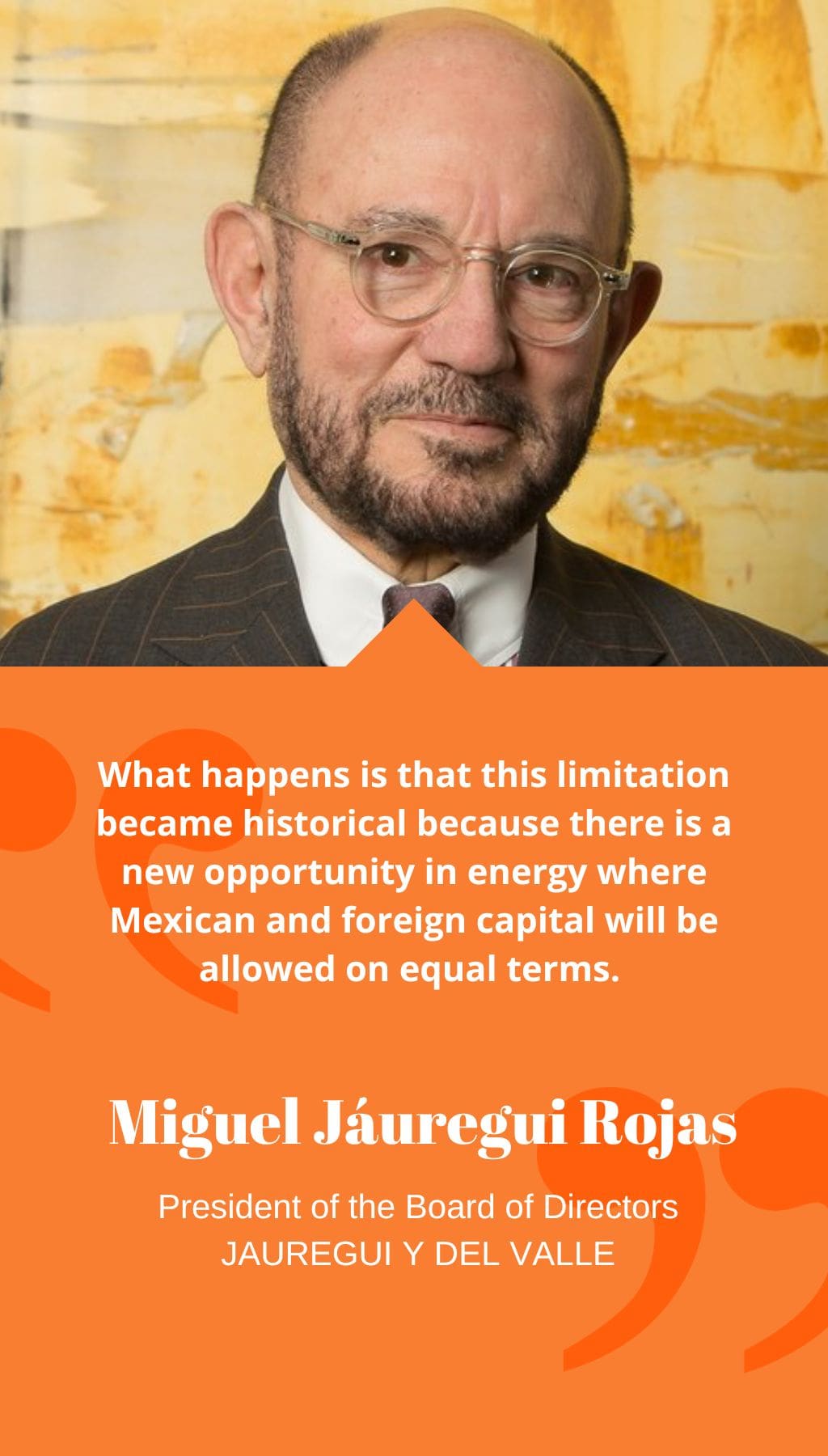
- Mexico | 12 March 2016

How have you been involved in the energy sector?
My personal history in hydrocarbons dates back to 1990 until today. I had previously made oil contracts for foreign companies as a partner in a law firm in New York. My professional practice evolved into oil trading issues, and we began helping Petróleos Mexicanos (“Pemex”) in international trade matters. We also advised Pemex service providers to achieve secure and transparent contracting processes. Pemex called us to handle international arbitration matters. Later, when the discussion of the Energy Reform that would impact Pemex and decentralized entities began, we initiated a sectoral dialogue, thanks to the auspices of the American Chamber of Commerce of Mexico. My firm is dedicated to mergers and acquisitions, tax law, energy, telecommunications, international trade, intellectual property, and other diverse areas of specialization necessary to serve our clients in our capacity as business lawyers.
What has been the discussion process of the Energy Reform and where is it heading?
The discussion has been exemplary and interesting. The December 2013 reform is a constitutional reform that gives us the necessary legal force to support secondary laws. Without this reform, it would have been very difficult to implement the Energy Reform.
How long do you think it will take to start noticing the changes?
The Energy Reform comprises four main laws and six major themes, i.e., hydrocarbons, electricity, institutional design, state productive enterprises, and the petroleum fund. There will be improvements derived from the Energy Reform that will be noticed more quickly than others, especially in the electric power area, where consumers are expected to feel the effects from the last quarter of 2014. Hydrocarbons will take the year 2015 to achieve the appropriate conditions. First, Pemex must be restructured and simultaneously lay the necessary foundations to promote the participation of foreign capital from the world’s major companies in the Mexican energy sector. Like everything that is important and has long-term duration, it will take time to understand, manage, measure, and apply the new energy legislation with certainty.
How will the panorama change in general terms?
The economic landscape will change very significantly although the ownership of hydrocarbons will not change. The restructuring of Pemex and the Federal Electricity Commission as state productive enterprises will allow them to compete with companies in the private sector. There will be free competition accompanied by a strengthening of regulatory bodies and state agencies such as the National Hydrocarbons Commission, CENACE, and others that avoid conflicts of interest and lack of competition. Another aspect to highlight within energy legislation is a huge transformation in two areas, transparency and accountability. There is also a push towards sustainability and environmental protection. In summary, there will be significant and broad changes, and their impact will be enormous.
Do you think the preexistence of the free trade agreement will facilitate the implementation of the reform?
The NAFTA has nothing to do with the Energy Reform, as this sector had an absolute reservation, and the Mexican government refused to include it in said Treaty. What happens is that this limitation became historical because there is a new opportunity in energy where Mexican and foreign capital will be allowed on equal terms. There, the experience of twenty years of NAFTA will stand out since Mexico’s trade with the US exceeds $300 billion in both directions, and therefore, the two countries have a large and institutional investment relationship.














